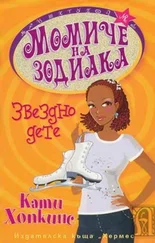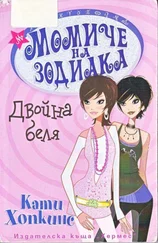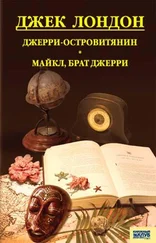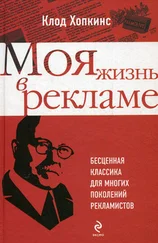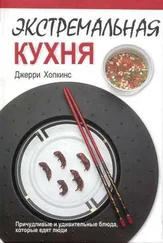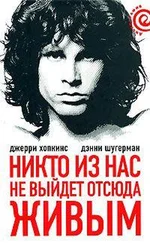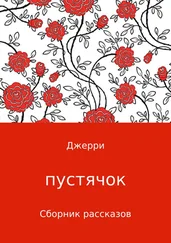What I didn’t realize, until Lamyai took me aside later, was that no matter how much I wanted to help, my “status” in the family dictated that I stand aside. It was, she said, kreng jai . And what, I asked, was that? She explained, saying that I was older, a foreigner, wealthier, better educated and et cetera and as such I was entitled to a kind and level of respect that, ironically, “kept me in my place.”
Kreng jai may be one of the slipperiest and stickiest aspects of Thai culture for a westerner to grasp, and one of the most difficult aspects of Thai character for him or her to accept. It is, as Chrisopher G. Moore explains in his book Heart Talk (1992), “a mingling of reverence, respect, deference, homage and fear—which every Thai person feels toward someone who is their senior, their boss, their teacher, mother and father, a police officer or towards those who are perceived to be a member of a higher class.”
Mont Redmond, another foreign author, writing in Wondering into Thai Culture (1998), saw it the same way, saying “this fear/consideration has produced some of the most adept and elegant manners on the face of this Earth. It is the disappearance of this restraint, and not its somewhat suffocating presence, which is bringing about the ruin of Thailand we see all around us today. Remove the consideration, and you have coups d’etat , corruption, and exploitation. Remove the fear, and you have profligacy, crime, and cultural collapse. Offense is everywhere, but fewer and fewer can gain leverage for redress with their feelings alone. As Thais lose the art of making small sacrifices to achieve long-term advantages—the essence of kwam kreng chai and diplomacy alike—the clumsy Western machinery of legislation, litigation and demonstration will occupy by default a place reserved in Thai hearts for the subtlest forms of blame, shame, and well-deserved fame.”
In time, I learned that that was, unsurprisingly, a foreign point of view, and as a foreigner I still haven’t totally discarded it. The way I saw it, kreng jai was a hangover from the feudal system that still influences so much modern Thai behavior— resembling in unsettling ways the class system that clings to English life and the caste system that still rules India, and in a less severe way, the kowtowing of China. Because kreng jai determined, or at least colored, virtually all relationships, I saw it as a way to open wide the doors to frequent and easy abuse.
Kreng jai is learned from childhood. Within the family, the order of birth is important. There are separate words for older and younger siblings, and the older is the most respected, regardless of whether he or she has earned that respect. Thus, if you are the third born child, you are “superior” to any children born after you and you defer to Numbers One and Two. Similarly, of course, parents and grandparents and uncles and aunts also are automatic beneficiaries of kreng jai .
It additionally affects relationships between the sexes. Thailand is, like too many countries in the world, sexist, and it is the male who is valued more than the female, and therefore given more “respect.” Along with more choices, higher salaries, and so on.
Similarly, when two Thai strangers meet, where they fit into Thailand’s complex social scheme may be the first order of business. Sometimes appearance tells all, as it would if one is obviously older than the other. Wardrobe may do it, too, as will accent; the dialects characteristically found in the northeastern and southern parts of the country may establish social place as quickly as Cockney would in Oxford, or one of the Cantonese variations likely will in Mandarin Beijing. A person’s home town or school can do the same. Similar biases exist around the world.
Having a powerful father or a strong political connection in Thailand is another sure path to entitlement, and for some a kind of immunity. Consider the case of a former police captain and onetime Cabinet Minister whose two sons had a reputation for beating up people in pubs and were charged with forging documents to evade military service. When one of them was accused of shooting a cop dead in a pub, despite the prosecution’s claim to have more than sixty eye-witnesses, the young man went free as earlier testimony was reversed and witnesses suffered loss of memory. Nor was anyone surprised when the sons of one of Thailand’s godfathers of crime were elected to Parliament.
Possessions and personal extravagances are another means of acquiring kreng jai . Thus, Thailand during the boom years became one of the world’s top markets for Mercedes-Benz auto-mobiles (with BMWs and Volvos not far behind) and the single best market on the planet for Johnny Walker Black Label Scotch. A prominent politician openly bragged to a newspaper reporter that he only felt comfortable when wearing suits designed by Armani, shirts by Versace, neckties by Lanvin and Valentino, shoes by Tettoni, and belts by Louis Vuitton. Nor was it unknown for the newly rich to have surrounding trees removed after building a showcase house because they blocked others from viewing the magnificent edifice.
It’s pointless to try to explain that all men and women are created equal, as I repeatedly do with Lamyai, with no success whatsoever—because in Thailand, as in George Orwell’s novel, Animal Farm , “All animals are created equal, but some are more equal than others.” It is as ingrained and automatic in social situations as the deferential hands-held-together wai helps define everyday greetings.
Sometimes this is carried to what westerners might call extremes. Kriengsak Niratpattanasai, an executive at DBS Thai Danu Bank, writes a weekly column in the Bangkok Post and in 2004 published a book, Bridging the Gap: Managing the Cross-Cultural Workplace in Thailand . In it, he told a story from his weekly column in the Bangkok Post , “Bridging the Gap” (Mar. 1, 2002) about a businessman who “loved to drive his car on provincial business trips. Aware that his health was weak, he always brought his driver as a contingency plan. On one trip the car crashed, the businessman died and his driver was seriously injured. Questioned by police after he recovered, the driver said that his boss often drove too fast and on that day visibility was poor. The driver confessed that he was too kreng jai to advise his boss to slow down.”
A similar story is known to all in Thailand. When a princess fell out of a boat and drowned, dozens stood by and did nothing. The taboo about physically touching anyone from the royal family was so ingrained in the population at that time, no one felt it permissible to try to help because it would’ve meant making contact. This same deference paid to the royal family still causes servants and many others to fall to their hands and knees and crawl when in their presence today, although this practice was forbidden by an earlier monarch nearly a hundred years ago.
It’s easy for a foreigner to criticize, yet many who have lived here longer than I praise kreng jai . In Heart Talk , Christopher Moore credits it with helping create “the incredible degree of politeness and civility found in exchanges between Thai people.” William Klausner, author of Reflections on Thai Culture (1991), said, “There is no English word for kreng jai because the farang don’t kreng jai .” And in his book, Bridging the Gap , Kriengsak Niratpattanasai insists that whatever abuses may result, the phrase means “being aware of another person’s feelings, helping others save face, and showing respect and consideration. More than behavior, it is a core Thai value.” And, he said, when “applied wisely, it can bring success in daily life.”
Читать дальше


